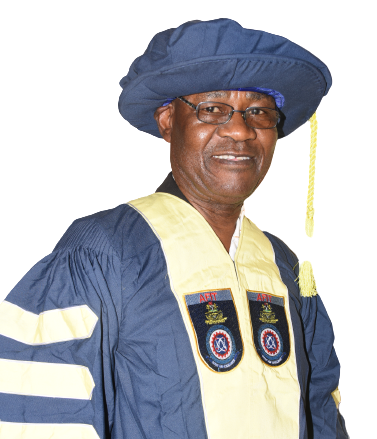Mechanical Engineering is the discipline that applies engineering physics, engineering mathematics, and materials science principles to design, analyse, manufacture and maintain mechanical systems. Mechanical Engineering being one of the oldest and broadest engineering disciplines was one of the pioneer undergraduate programmes established by AFIT in 2018. The Mechanical Engineering Department was established under the Faculty of Air Engineering. On successful completion of the programme and fulfilment of other University requirements, a Bachelor of Engineering Degree in Mechanical Engineering (B.Eng. Mech. Eng.) is awarded.
The programme is geared towards the practical applications of engineering sciences to the solution of problems regarding the manufacture and operation of industrial machines, processes and power production. Students are prepared for professional positions in design analysis, manufacture and the application of machines, processes and controls. Consequently, the programme includes Computer-Aided Mechanical Engineering (CAME), which integrates in-depth computing skills with traditional mechanical engineering topics. Skills such as programming in a variety of languages, use of internet resources, general purpose application tools, modelling and simulation techniques and associated software, computer in design and manufacturing, and the use of embedded computers for control and automation. The programme embraces traditional mechanical engineering topics such as applied mechanics, thermodynamics, materials science, stress analysis, engineering design and engineering management but will approach these from the modern ‘computer – orientated’ viewpoint by paying particular attention to such topics as computer-aided design, computer-aided manufacture, finite element analysis, computational fluid dynamics, robotic, control systems, simulation and computer programming languages, using wide number of state of the art computer-based engineering applications. Required courses in electronic engineering may be included. The overall focus of the programme is on machines, structures, devices, mechanical systems and energy conversion systems. Mechanical Engineering is often considered the broadest of engineering disciplines, with overlap into many of the other existing engineering disciplines, including Civil, Electrical, and Chemical Engineering.
Primary Areas of Specialization:
- Solid Mechanics (analysing the behaviour of solid bodies subjected to external loads, stress, and/or vibrations and using that information in the design and manufacture/construction of such bodies)
- Fluid Mechanics (analysing the behaviour of liquids and gases and using that knowledge in the design and development of machinery and systems that can and/or do influence that behaviour – pumps, fans, turbines, piping systems, etc.)
- Thermodynamics (analysing the conversion one form of energy into another and using that knowledge to design and develop energy conversion devices and systems – power plants, engines, Heating, Ventilation, and Air Conditioning (HVAC) systems, etc.)
- Mechanical Design (covering the full range of mechanical-based products and systems)
VISION OF THE DEPARTMENT
The Mechanical Engineering Department at the Air Force Institute of Technology shall be known nationally and internationally as a centre of excellence in producing quality mechanical engineers and scientists and be renowned for its quality teaching, research and professional services.
MISSION OF THE DEPARTMENT
The department shall:
- provide high quality education to local and international students;
- engage in cutting edge research and development to aid and foster Nigerian industries;
- expand the departments programmes to include certificate and postgraduate programmes;
- enhance the professional mechanical engineering practice through active participation in the Council for the Regulation of Engineering in Nigeria (COREN), the Nigerian Society of Engineers (NSE) and the Nigerian Institution of Mechanical Engineers (NIMechE).

